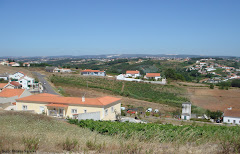theguardian.com,
Thursday 8 May 2014
In the dizzying world of tech cities, garden cities and smart cities, perhaps it's time to redefine what it means to be a city at all

A view of Manchester in 1844 by Thomas Higham.
The lack of a diocesan cathedral meant Manchester did not win city status until 1854.
Photograph: Alamy
Whatever the perceived strengths and weaknesses of your city's brand, one thing appears unarguable, and that's the value of being identified as a city in the first place.
In the US midwest, admittedly, the word "city" has been appended with abandon to any one-brothel main street that once offered relief to travellers across the prairies. Likewise Australia, where Melbourne suburbs style themselves as cities and outback dots such as the City of Dubbo appear on the map. This is the pioneer spirit at work – echoing ancestors' hopes and ambitions for these remote settlements.
Nowadays, however, towns everywhere seem to have aspirations to brand themselves with city status – and sometimes even that isn't enough, when there is also a "global city" or "city of culture" title to be garnered. Beyond the brand blather, does the city distinction really matter?
...
But above all, a city, rather than a village green, is a place, as the writerRichard Sennett put it, where strangers meet; where new ideas are formed in a public space. A common ground.
Developers seem ever more keen to label a place a "tech city", a "media city" or a "smart city" to connote this notion of exchange and innovation. But true cities are dense, messy, uncontrolled and cosmopolitan – the opposite of garden cities or self-styled "office hubs". The architect Sir Terry Farrell’s recent recommendation to government, that each town or city should have an “urban room” to debate its own future, is a reflection of a decline in these genuine common grounds and the rise of privatised “public” space.
Ultimately, perhaps the true definition of a city can be found in the phenomenon of “urbicide” – the deliberate destruction of cities. In war and in peace, this happens where the cosmopolitan is treated with suspicion and where strangers, differences and otherness cannot be tolerated. True cities should never have such smalltown mentalities. Their inhabitants are worldly citizens, not parochial townsfolk.
Ler artigo completo:
http://www.theguardian.com/cities/2014/may/08/what-makes-city-tech-garden-smart-redefine
Enviado por:
Dan Donoghue













Sem comentários:
Enviar um comentário